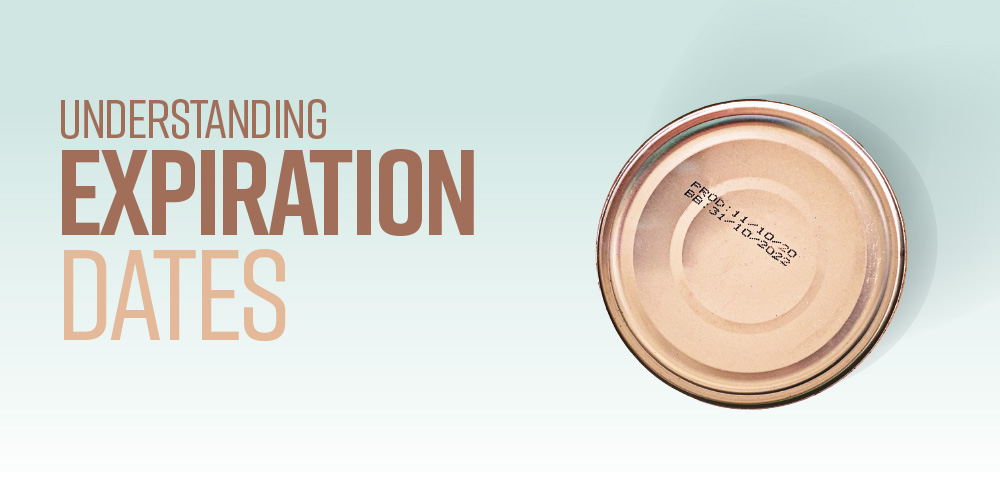
Worldwide, we throw away 1.5 billion tons of food every year, and experts estimate that about 30–40% of our entire food supply ends up in the garbage. Broken down, that’s 219 lb for every person, or about 650 edible apples tossed away every year. After an expiration date has passed, many people think those food items need to be put in the trash.
First, it’s essential to understand what expiration dates mean. You may have noticed that there are a couple of different dates: sell-by dates and best-before dates. Is it safe to consume foods past these dates?
The purpose of sell-by dates is to assist grocery store staff in managing inventory. The dates alert them to when it’s time to remove these products from the shelves. We often find them on refrigerated items, such as eggs, milk, yogurt, and salad mixes. So, if they are simply there to help grocery stores manage their inventory, how much should we pay attention to them? Sell-by dates inform us how fresh an item is, but they do not show whether or not the item should be consumed. Here, a little knowledge can help.
Eggs are good for 3–5 weeks beyond their sell-by date, while we can consume dairy for up to 1–2 weeks after. If you suspect eggs have passed their prime, crack one egg at a time into a separate bowl before adding it to a recipe. You will know instantly from the smell whether you’ve hit a rotten one. Cartons of soup stock and plant milk are often suitable for weeks past their expiration dates. When opening them, write the date on the box, and consume within two weeks. However, if that time has passed, you can pour a small amount into a bowl, and if the texture, smell, and taste all appear normal, it is perfect to use.
Best-before dates denote when the food will taste best. The food is not necessarily spoiled after this date; however, the flavor and texture may not be optimum. It is possible to extend the flavor and texture of food long after the best-before date with proper storage and handling.
Pantry staples like lentils, beans, oats, nuts/seeds, and flours can last a long time depending on how they are processed. If they have been milled or rolled, the oils have been exposed to air and can become rancid. When purchasing these items, do pay attention to the expiration dates as the further away the date is, the fresher the product will be. Once at home, set aside about 7–10 days’ worth and store the rest in a cool, dark place. The freezer works very well. While these items won’t necessarily make you sick if consumed past their expiration dates, they may take longer to cook, not cook as evenly, and may not taste good, potentially ruining a recipe.
Rancid oils should not be consumed as they cause unnecessary inflammation in the body. Oils can be stored in sealed cans for years; however, once opened they can spoil quite quickly. Regardless of the date printed on the bottle, use your sense of smell to determine whether an oil is still good to consume. Dispose of any oils that smell metallic, soapy, or fishy as this indicates that they have gone rancid.
Rather than simply relying on dates, it is important to arm ourselves with knowledge and use some common-sense guidelines. By heightening our ability to spot food that has actually gone bad, we will be able to identify food that is still perfectly good to eat. Spoiled food will usually look different in texture and color, and it may smell unpleasant and taste bad before it becomes unsafe to eat. If you’re willing to let sight and smell be your true guides, you will be able to extend the life of your food, putting more on your plate and less in the trash bin.












